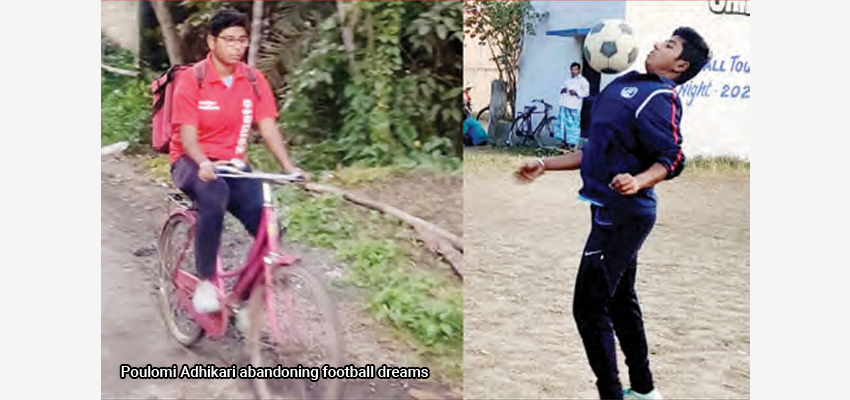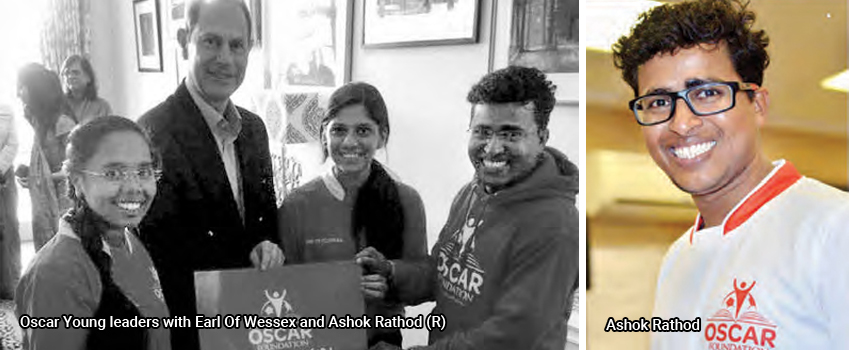
CORPORATE CITIZEN SLAPS THE ECOSYSTEM UNSUPPORTIVE OF SPORTING STARS FROM POOR BACKGROUNDS ACROSS INDIA
The might of Social Media has recently brought forth the plight of a few sportspersons succumbing to the vicious poverty cycle. Numerous former ‘lost’ sportspersons continue to fight life’s battle for dignified livelihoods despite medals adorning the walls of their homes, telling the tales of their glorious moments. Whether monetarily or with infrastructure resources, the lack of ongoing support often spells the death knell for lifelong sustainability in the sports arena. Their lives remain untracked until their next viral video, furthering their insecurities amongst overwhelming broken promises from netizens and authorities. Recent media stories have highlighted the dilemma of Dipti Kumari, an archer of national repute from Jharkhand, whose broken bow is a testimony to her current situation. West Bengal’s Poulami Adhikari is currently a food delivery agent but has been a 2013 qualifier for the AFC U-16 Women’s Championship, representing India at the 2016 Glasgow Homeless World Cup. The list is endless, echoing the government’s inability to identify, hone and hand-hold sporting talent. Athlete Geeta Kumar had to sell vegetables in Jharkhand’s Ramgarh district, and national karate champion Bimla Munda sold rice beer in Ranchi. Dipti currently runs a tea stall to pay off her debts. The ‘broken’ professional bow has yet to find a replacement and is a reminder of her glorious past. In 2012, Dipti Kumari represented India at Ogden, Utah but was struggling to pay off a Rs 7 lakh loan to buy a professional bow worth Rs 4.5 lakh and other expenses. While participating in the US international tournament, the bow broke, forcing Dipti to abandon the tournament. She switched to a bamboo bow, automatically making her ineligible to participate in international tournaments. Dipti holds a government letter promising to replace her broken professional bow, which has remained elusive. The government’s policy offers jobs to national and international medal winners but comes with a catch. Sports Ministry sources said, “In the policy, it has been made clear that jobs can be given only to those who have won international medals and been recognized by the Indian Olympic Association.” Dipti does not meet the criteria because she has yet to win an international tournament! “As a competitive archer, I was a winner. But now, when I sell tea, I lose every day,” said Dipti
CORPORATE CITIZEN CLAPS FOR ASHOK RATHOD, FOUNDER & EXECUTIVE DIRECTOR OF OSCAR FOUNDATION, AND A HARBINGER OF CHANGE FOR NUMEROUS SCHOOL DROPOUTS.

Born and brought up in Mumbai’s Ambedkar Nagar slum, he was barely 18 when he established OSCAR, encouraging slum children to pursue school by linking sports and education. It operates in Mumbai, Daman, Rajasthan, and Karnataka. Ashok has since impacted 14000+children through the program and travelled globally to spread his inclusive message and raise funds. He was challenged during the initial phases to convince poor parents to send their kids to school. Those from the communities working around Sassoon Docks preferred sending their children to the fishing ports, collecting stray fish, and selling them at the markets rather than pursuing education. However, his father, a fisherman, also encouraged Ashok to break the vicious cycle of drugs, gambling, illegal activities, and early marriage that follows quick money. As a college-goer, and a mentor with Magic Bus India, an NGO, he encouraged school dropouts to embrace football. He taught football to school dropouts with the caveat that they had to attend school if they were to undergo training with him. The program’s success led many to come out of their poverty cycles, either pursuing sports, some at the international level, or other professions. He followed a similar stance with slum girls, denying boys if the girls did not enroll for football coaching. It built grit and confidence amongst the girls too. About 100+ girls across various age groups have since thrived, some representing India in the Under-17 World Cup or playing for state teams. Few boys have found paths with Bengaluru FC, Mumbai City, and Jamshedpur FC in the Indian Super League. Ashok is delighted that youths from the community are returning to lead their programs. Ashok, a 2021 Acumen India Fellow, said, “We know that 90% of our kids passed class 10 and 12. For those that don’t pass, we follow up, so they don’t drop out. Once they fail, they don’t want to continue. We counsel them and help them to continue.”